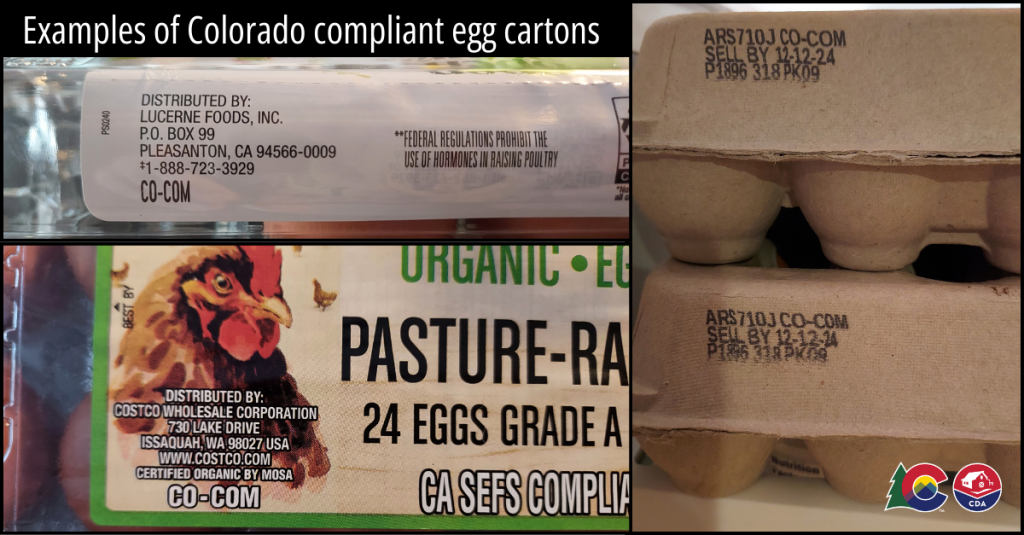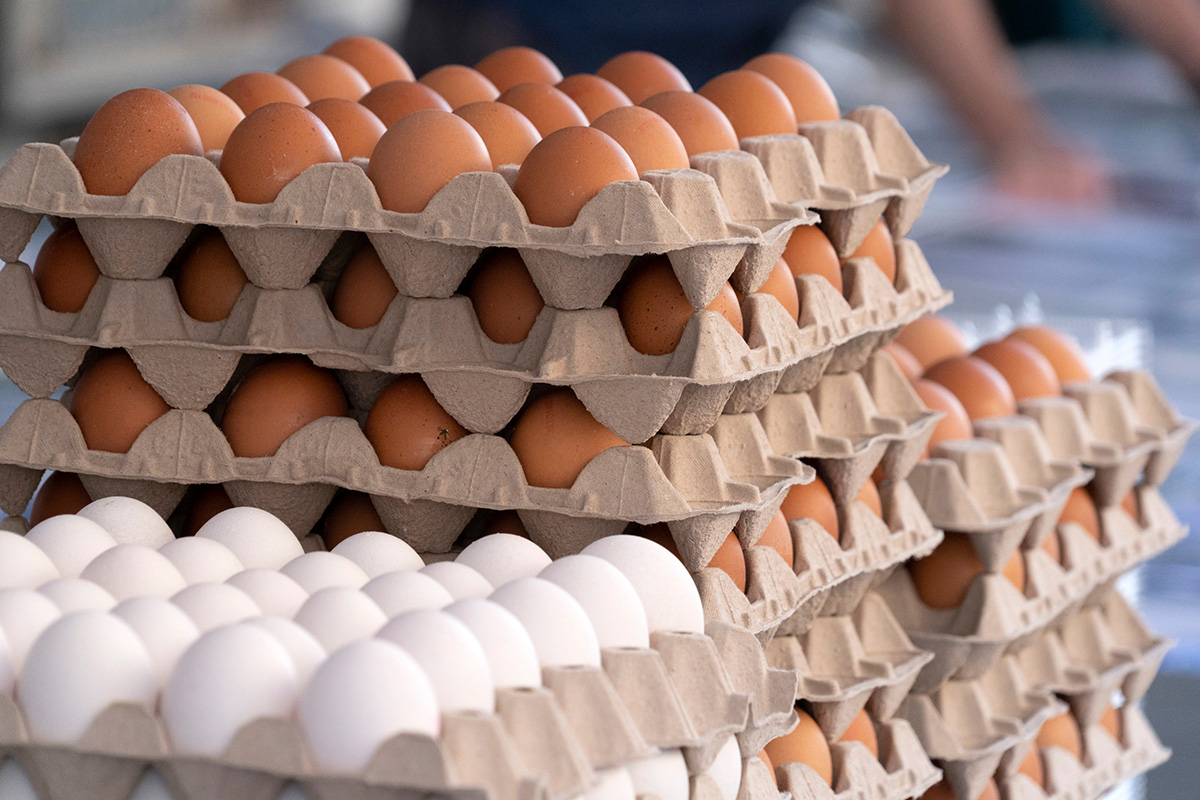As of January 1, 2025, the final phase of Colorado’s cage-free egg law goes into full effect. Both retailers and egg producers have been preparing to comply with the cage-fee egg requirements since the state law passed in 2020. Those eggs will be labeled with “CO-COM,” “organic,” or “cage-free” on their package.
“This final phase in Colorado’s cage-free standards aligns with the operational changes many egg producers have been voluntarily making because of consumer demand since 2020,” said Colorado Commissioner of Agriculture Kate Greenberg. “The Colorado Department of Agriculture will continue to focus on our educational approaches, working with retailers to meet the regulations while making sure consumers continue to have access to eggs.”
January 1, 2025, begins the final phase of the law’s implementation and is the culmination of years of work by CDA in partnership with egg producers, distributors, and retailers to plan for and come into compliance with the law prior to the new year. All commercial Colorado egg laying facilities are already compliant with the regulations effective January 1. Additionally, since 2023, 74 certificates of compliance have been issued, representing approximately 1,500 farms outside of the state that can supply eggs to Colorado.

Some consumers may see signage at their grocery stores indicating an egg shortage or a carton limit per purchase. The country continues to experience the largest outbreak of Highly Pathogenic Avian Influenza (HPAI), which has impacted more than 127 million domestic birds nationwide since 2022 including nearly ten million in Colorado. In a commercial egg-laying facility, a detection of avian influenza leads to a 100% mortality rate, which continues to cause supply chain challenges and increased egg prices across the country. Colorado Department of Agriculture (CDA) and egg producers in Colorado and around the U.S. are working hard to minimize the impact to consumers as they have been since the beginning of the avian influenza outbreak.
“Egg production relies on a complex system. Ongoing cases of HPAI have put enormous stress on this system and there are signs that the stress is having impacts on egg availability,” said Bill Scebbi, Executive Director of Colorado Egg Producers. “Be assured that we are working together with the egg industry to fill customers’ orders as we are able to develop alternate supply plans to address any disruption that may occur.”
The bipartisan Confinement of Egg-Laying Hens law (Cage-Free) was passed in 2020 in response to consumer demand for cage-free eggs and established phased-in enclosure requirements for farm owners. The rules establish an inspection and certification process for confirming that farms are cage-free and outline a recordkeeping process for certified egg farms. An accredited certifying agent must complete the audit and a copy of the results must be submitted to CDA.
“As a longstanding promoter of eggs from cage-free hens, we are gratified to see the cooperation between citizens, legislators, and the CDA to implement this rule successfully with minimal disruption,” said Alan Lewis, Vice President Advocacy & Governmental Affairs at Natural Grocers.
Since 2023, CDA has been working with producers, distributors, and retailers to meet the statutory requirement of selling eggs from facilities that provided at least one square foot of space per hen. The last phase of the law, beginning on January 1, requires egg retailers who sell more than 25 cases of eggs per week to sell eggs from a fully cage-free facility. Bulk egg shipments must be accompanied by title documents labeled CO-COM or be accompanied by a copy of the farm’s Certificate of Compliance. Farms with 3,000 or fewer egg-laying hens and business owners who sell fewer than 25 cases of thirty dozen shell eggs per week (750 dozen/week) are exempt from these regulatory requirements.
As the final phase of the law begins to roll out on January 1, CDA will continue with an education-first approach to enforcement, and CDA inspectors will work with retailers who are experiencing supply chain issues due to HPAI to ensure they can continue providing eggs to consumers. Existing eggs will not be removed from shelves unless a recall or impact to human health is imminent. CDA will use its education, outreach and regulatory authority to help ensure a fair market for all egg retailers and producers while helping resolve supply chain issues and as producers and retailers adjust to the final phase of the law’s implementation.
Colorado Department of Public Health and the Environment will take a similar partnership-based approach with retailers to management of the minimum stock requirements for the Special Supplemental Nutrition Program for Women, Infants, and Children (WIC) program.
Producers can learn more about the cage-free egg rules and consumers can find CDA’s list of egg suppliers allowed to sell eggs in Colorado at ag.colorado.gov/eggs.




